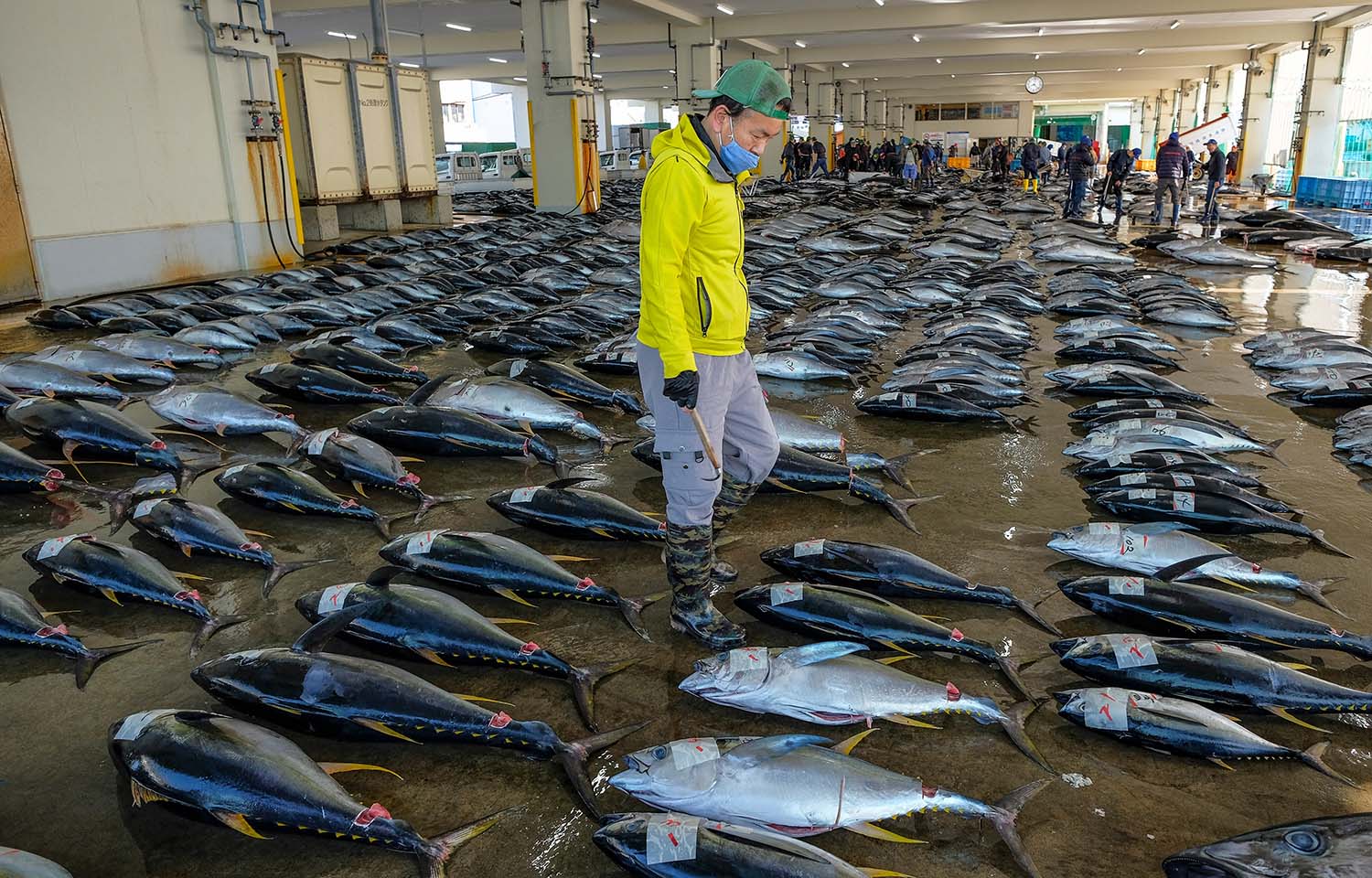China has agreed to end its ban on Japanese seafood imports – eventually.
China’s ban was implemented in August 2023 after Japanese authorities approved the release of treated wastewater from the Fukushima Daiichi nuclear power plant, which was damaged by an earthquake and tsunami in 2011.
Chinese President Xi Jinping and Japanese Prime Minister Fumio Kishida reached an agreement at the Asia-Pacific Economic Cooperation (APEC) meeting in November 2023, resulting in China commencing a review of its ban.
On 20 September 2024, China Ministry of Foreign Affairs Spokesperson Mao Ning said Beijing is still opposed to Japan’s “unauthorized discharge into the sea” but that the agreement would ensure that Japan would “earnestly fulfill its obligation under international law.”
“China has urged Japan to seriously address concerns inside and outside Japan, to earnestly fulfill its obligations, to give full cooperation in the establishment of an independent and effective long-term international monitoring arrangement in which stakeholders can participate substantively, and to accept independent sampling and monitoring by China,” Ning said. “The competent departments of China and Japan have recently conducted multiple rounds of consultations on the discharge of nuclear-contaminated water from the Fukushima Daiichi Nuclear Power Station into the ocean and reached [an] agreement.”
The agreement consists of four clauses, including allowing China to participate in Japan’s monitoring arrangement with the International Atomic Energy Agency (IAEA) and conduct its own independent water sampling and monitoring. Japan has also pledged to do “its utmost to avoid leaving negative impact on human health and the environment, and conducting continuous evaluations of the impact on the marine environment and marine ecosystems.”
“After China participates substantively in the long-term international monitoring within the IAEA framework and the independent sampling and other monitoring activities by participating countries are carried out, China will begin to adjust the relevant measures based on scientific evidence and gradually resume imports of Japanese aquatic products that meet the regulation requirements and standards,” Ming said.
Kishida said in a statement the agreement represents a breakthrough in extended negotiations, which extended through 10 rounds of talks.
“Japan conveyed its readiness to conduct additional monitoring of the ALPS-treated water, while China has begun adjusting its import restrictions on Japanese fishery products, steadily restoring imports of Japanese fishery products that meet the standards,” he said. “There is no change to Japan's position that the restrictions should be lifted immediately, and we intend to use today's announcement to lead to the lifting of the restrictions.”
The IAEA has approved China’s participation in enhanced monitoring of the release of Fukushima wastewater, according to Kishida, who said IAEA Director-General Rafael Grossi reaffirmed the safety of all water released thus far.
“Under the IAEA framework, experts from each country have traditionally participated in monitoring, but we have agreed that the current IAEA monitoring will be expanded in light of the concerns of each country and that experts from three countries, including China, will take samples of water and conduct inter-laboratory comparisons. Japan welcomes this additional monitoring,” Kishida said.
Grossi said his agency also supports China’s more involved role in the monitoring process, which is expected to take decades and involve the release of more than 1.3 million metric tons (MT) of treated radioactive water. Thus far, around 60,000 MT has been released over eight discharge periods.
"I wish to commend the government of Japan for its continued engagement with the IAEA and the government of China for the constructive consultations held with the agency in support of this bilateral process that comes to a positive conclusion today," Grossi said in a statement.
In 2023, Japanese seafood exports to China plummeted 57 percent from the previous year, from JPY 74.6 billion (USD 474.8 million, EUR 437.5 million) to JPY 32 billion (USD 203.7 million, EUR 187.6 million). Japan's overall exports in the seafood category, which includes not only fish and shellfish but also pearls, coral, and ornamental fish, fell 17 percent from FY 2022 to JPY 218.5 billion (USD 1.39 billion, EUR 1.28 billion) in FY 2023. The U.S. overtook China as Japan’s biggest seafood customer in the period.
The loss of the Chinese market has created two major problems for Japanese seafood suppliers: replacing what is, for many producers, their largest market and finding new locations to process seafood for export to third countries.
Russia has not adjusted its own ban on Japanese seafood, and South Korea continues to ban seafood products from eight Japanese prefectures.








